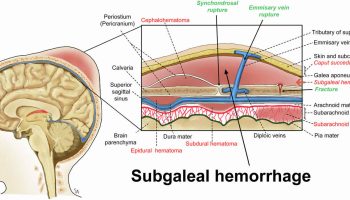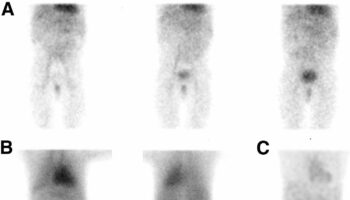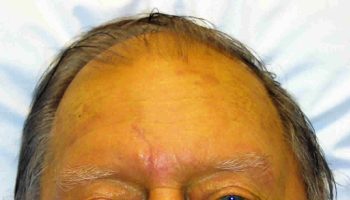What is allulose
Allulose also called psicose, is a rare sugar with low‐calorie (<0.2 kcal/g) found naturally in small amounts in dried fruits, brown sugar and maple syrup 1, that can be consumed by obese or overweight individuals 2. Allulose is the C-3 epimer of fructose (4 kcal/g of fructose), is a sugar substitute, which has 70% of the sweetness of sugar (sucrose) but contains 90% fewer calories (<0.2 kcal/g of allulose) 1. When consumed alone, allulose does not raise blood glucose and insulin levels in healthy individuals 3. A study by Noronha et al. 1, along with a previous study in participants with prediabetes, have shown that the addition of small doses of allulose (5 g and 10 g) also helps to lower the postprandial blood glucose response to high glycemic index carbohydrate meals (i.e. 75‐g oral glucose tolerance test (OGTT) or standard Japanese meal) by ~8% to 14% 4. This decrease is modest when compared to an oral antihyperglycemic agent such as acarbose (e.g. Glucobay, Precose, Prandase), which has shown reductions of ~31% to 58% on postprandial glycemia when administered with a meal load 5. The mechanism by which allulose reduces the postprandial blood glucose response to an oral glucose load is unclear. In contrast, another study 6 to assess the effect of small single doses of fructose and allulose on postprandial blood glucose regulation in response to a 75 g-oral glucose tolerance test (75 g-OGTT) in 25 healthy individuals, found that allulose did not show a significant postprandial blood glucose effect or markers of insulin secretion.
Many studies have suggested that low‐calorie (<0.2 kcal/g) d-allulose has beneficial effects on obesity-related metabolism in mouse models, but only a few studies have been performed on human subjects. Hayashi et al. 7 conducted a clinical trial to examine the anti-obesity effects of d-allulose on human subjects. In their study, d-allulose supplement reduced body weight, body fat percentage, and waist circumference. However, the study had some limitations. First, the sample size in their study (Males: 17, Females: 17) was too small to confirm statistical significance. Second, they used high fructose-corn syrup as placebo material, which can induce and/or accelerate obesity.
D-allulose is only present in small quantities in commercial mixtures of d-glucose and d-fructose obtained from the hydrolysis of sucrose or isomerization of d-glucose 8. However, currently, allulose sugar can be manufactured in large quantities from the hydrolysis of sugar (sucrose) or isomerization of d-glucose using enzymatic methods 9. D-allulose is generally recognized as safe (GRAS), according to the U.S. Food and Drug Administration (FDA) regulations 10.
Several studies have provided preliminary evidence on the impact of d-allulose on lipid metabolism 11. Although d-allulose was suggested to act in a similar manner as d-fructose, interestingly, it enhances glucose uptake from liver and suppresses hepatic lipogenic enzyme activities 12. In addition, allulose sugar lowered food intake while it increased energy expenditure during darkness and soleus muscle lipoprotein lipase activity in rats pair-fed the high-sucrose diet 13. D-allulose inhibits dietary fat absorption in the small intestine and increases β-oxidation in fat tissue under pair-feeding conditions in mice fed with a high-fat diet 11. Most studies indicated that d-allulose induces a decrease in body weight, fat mass, and food or energy intake in experimental animal models 14. However, there have been only a few studies that have been conducted in human subjects to test the efficacy of d-allulose, and they include some limitations in the form of small sizes of subjects and in the use of placebo material 7.
In another study with 144 healthy overweight (average BMI 26 kg/m2) human subjects by Han et al. 2, d-allulose supplementation for 12 weeks reduced body fat mass, body fat percentage, and subcutaneous fat area while there was no significant reduction in visceral fat area.
Allulose side effects
None known. Most participants tolerated the treatments well. There were six reports of lightheadedness, five reports of mild nausea, and one report of fainting 6. For five of the participants who reported feeling unwell, the episodes of lightheadedness and mild nausea were brief, lasting for no longer than five to ten minutes after ingestion of the study drink. This is likely due to the high amount of sugar (75 g glucose, with or without 0 g, 5 g, or 10 g of additional allulose or fructose) consumed within a short (5-min) period of time. One participant, who accounted for five of six reports of lightheadedness, reported feeling unwell for a few hours following each treatment. In these cases, the issue was thought to be with the treatment protocol of the fasting blood sampling in combination with the study drink consumed in a short period of time, more than any one treatment in particular.
- Noronha JC, Braunstein CR, Glenn AJ, et al. The effect of small doses of fructose and allulose on postprandial glucose metabolism in type 2 diabetes: A double-blind, randomized, controlled, acute feeding, equivalence trial. Diabetes Obes Metab. 2018;20(10):2361-2370. https://www.ncbi.nlm.nih.gov/pmc/articles/PMC6175314/[↩][↩][↩]
- Han Y, Kwon EY, Yu MK, et al. A Preliminary Study for Evaluating the Dose-Dependent Effect of d-Allulose for Fat Mass Reduction in Adult Humans: A Randomized, Double-Blind, Placebo-Controlled Trial. Nutrients. 2018;10(2):160. Published 2018 Jan 31. doi:10.3390/nu10020160 https://www.ncbi.nlm.nih.gov/pmc/articles/PMC5852736/[↩][↩]
- Iida T, Kishimoto Y, Yoshikawa Y, et al. Acute D‐psicose administration decreases the glycemic responses to an oral maltodextrin tolerance test in normal adults. J Nutr Sci Vitaminol (Tokyo). 2008;54:511‐514[↩]
- Hayashi N, Iida T, Yamada T, et al. Study on the postprandial blood glucose suppression effect of D‐psicose in borderline diabetes and the safety of long‐term ingestion by normal human subjects. Biosci Biotechnol Biochem. 2010;74:510‐519.[↩]
- Wachters‐Hagedoorn RE, Priebe MG, Heimweg JA, et al. Low‐dose acarbose does not delay digestion of starch but reduces its bioavailability. Diabet Med. 2007;24:600‐606.[↩]
- A Double-Blind, Randomized Controlled, Acute Feeding Equivalence Trial of Small, Catalytic Doses of Fructose and Allulose on Postprandial Blood Glucose Metabolism in Healthy Participants: The Fructose and Allulose Catalytic Effects (FACE) Trial. Nutrients 2018, 10(6), 750; doi:10.3390/nu10060750 https://www.mdpi.com/2072-6643/10/6/750/htm[↩][↩]
- Hayashi N., Yamada T., Takamine S., Iida T., Okuma K., Tokuda M. Weight Reducing Effect and Safety Evaluation of Rare Sugar Syrup by a Randomized Double-Blind, Parallel-Group Study in Human. J. Funct. Foods. 2014;11:152–159. doi: 10.1016/j.jff.2014.09.020[↩][↩]
- Granström T.B., Takata G., Tokuda M., Izumori K. Izumoring: A Novel and Complete Strategy for Bioproduction of Rare Sugars. J. Biosci. Bioeng. 2004;97:89–94. doi: 10.1016/S1389-1723(04)70173-5.[↩]
- Takeshita K., Suga A., Takada G., Izumori K. Mass Production of d-Psicose from d-Fructose by a Continuous Bioreactor System using Immobilized d-Tagatose 3-Epimerase. J. Biosci. Bioeng. 2000;90:453–455. doi: 10.1016/S1389-1723(01)80018-9.[↩]
- https://www.fda.gov/downloads/Food/IngredientsPackagingLabeling/GRAS/NoticeInventory/ucm569097.pdf[↩]
- Han Y., Han H.J., Kim A., Choi J., Cho S., Park Y.B., Jung U.J., Choi M. d-Allulose Supplementation Normalized the Body Weight and Fat-pad Mass in Diet-induced Obese Mice Via the Regulation of Lipid Metabolism Under Isocaloric Fed Condition. Mol. Nutr. Food Res. 2016;60:1695–1706. doi: 10.1002/mnfr.201500771[↩][↩]
- Nagata Y., Kanasaki A., Tamaru S., Tanaka K. d-Psicose, an Epimer of d-Fructose, Favorably Alters Lipid Metabolism in Sprague—Dawley Rats. J. Agric. Food Chem. 2015;63:3168–3176. doi: 10.1021/jf502535p[↩]
- Ochiai M., Onishi K., Yamada T., Iida T., Matsuo T. d-Psicose Increases Energy Expenditure and Decreases Body Fat Accumulation in Rats Fed a High-Sucrose Diet. Int. J. Food Sci. Nutr. 2014;65:245–250. doi: 10.3109/09637486.2013.845653[↩]
- Matsuo T., Baba Y., Hashiguchi M., Takeshita K., Izumori K., Suzuki H. Dietary d-psicose, a C-3 Epimer of D-fructose, Suppresses the Activity of Hepatic Lipogenic Enzymes in Rats. Asia Pac. J. Clin. Nutr. 2001;10:233–237. doi: 10.1046/j.1440-6047.2001.00246.x[↩]





